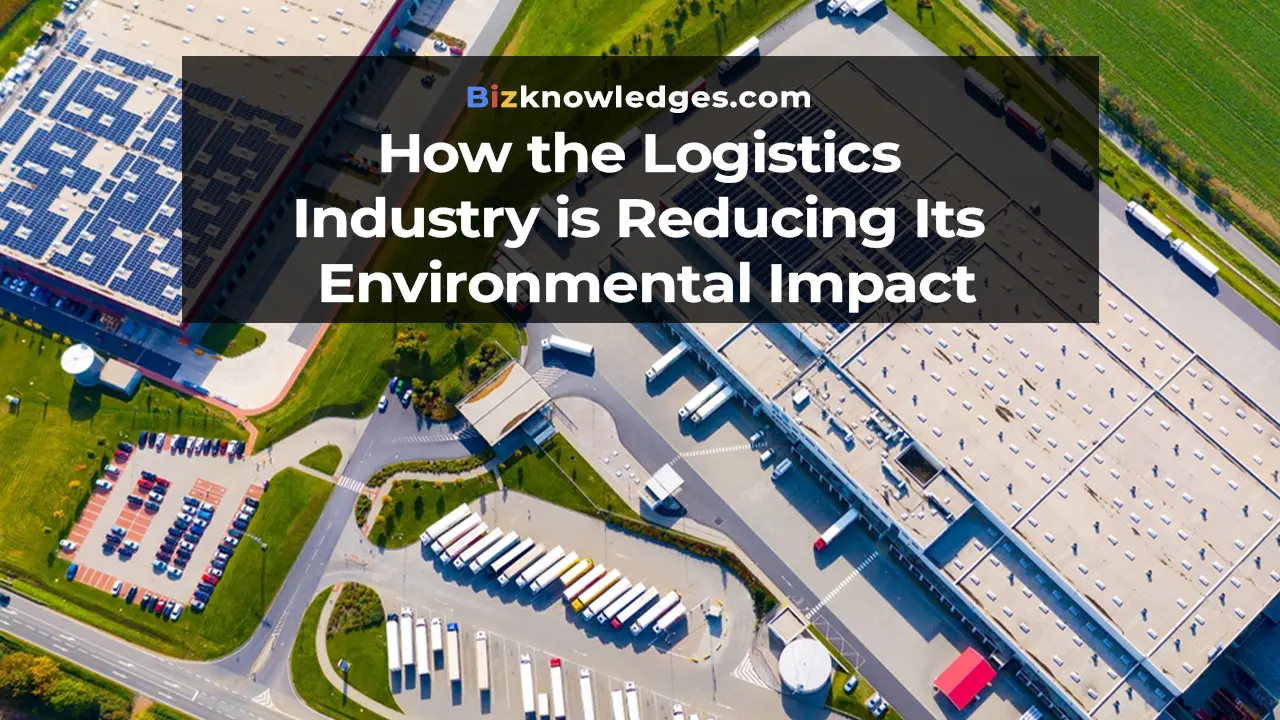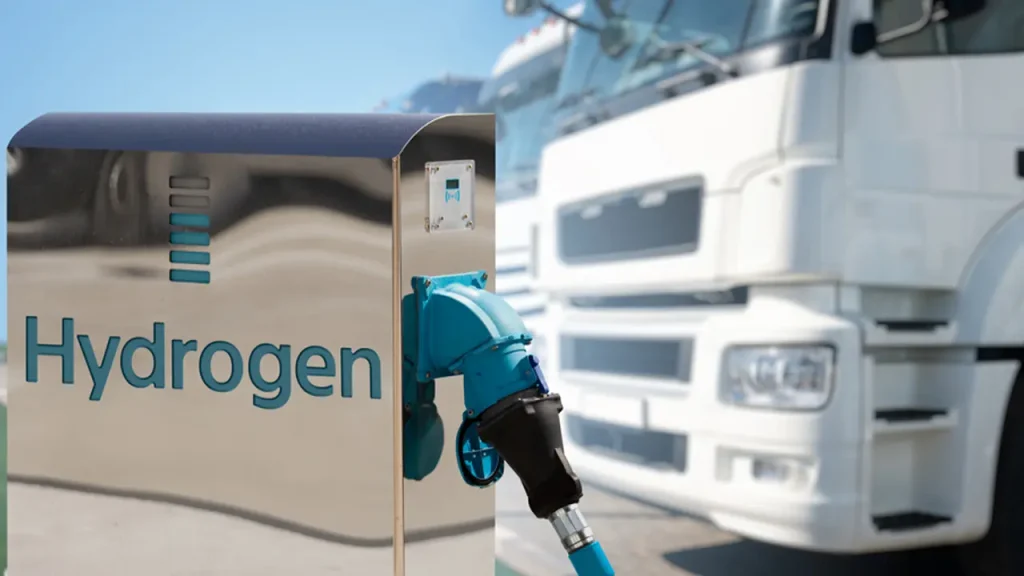How the Logistics Industry is Reducing Its Environmental Impact

The logistics industry plays a crucial role in global trade and commerce, ensuring goods move efficiently from manufacturers to consumers. However, this essential function comes with significant environmental costs, including high carbon emissions, fuel consumption, and waste generation. In response, logistics companies are embracing new technologies, operational efficiencies, and sustainable practices to minimize their ecological footprint. These efforts are not just about regulatory compliance or corporate social responsibility; they are shaping the future of logistics as a greener, more sustainable industry.
Smart Routing and Dispatch Technology
One of the most effective ways to reduce emissions and fuel consumption in logistics is through the optimization of delivery routes. Artificial intelligence (AI) and machine learning are revolutionizing route planning by analyzing vast amounts of data to determine the most efficient paths for delivery vehicles. This reduces unnecessary mileage, minimizes idle time, and helps lower overall fuel consumption.
Dynamic dispatching is another innovation that improves efficiency. With real-time tracking and logistics software, companies can consolidate shipments effectively, ensuring that trucks operate with full loads instead of traveling partially empty. This optimization significantly reduces the number of vehicles on the road and lowers emissions. Additionally, GPS and Internet of Things (IoT) sensors provide real-time traffic data, allowing drivers to avoid congestion and select the most fuel-efficient routes. These advancements collectively contribute to a smarter, leaner logistics network that prioritizes both operational efficiency and environmental sustainability.
Sustainable Vehicle Technologies
A major shift in the logistics industry is the move toward sustainable vehicle technologies. Traditional diesel-powered trucks are a leading contributor to greenhouse gas emissions, but advancements in electric and hybrid truck technology are offering viable alternatives. Companies such as Paccar, Volvo, and Daimler are at the forefront of developing electric and hydrogen-powered trucks, which drastically reduce reliance on fossil fuels.
Autonomous vehicle technology is also playing a role in making logistics more sustainable. Self-driving trucks, equipped with AI-driven systems, optimize acceleration and braking patterns to maximize fuel efficiency. By reducing unnecessary energy waste, these autonomous solutions lower emissions and operational costs. Additionally, improvements in vehicle design, such as aerodynamic enhancements and lightweight materials, are further reducing fuel consumption. Trucks with improved aerodynamics have less wind resistance, requiring less energy to operate, while lighter materials decrease the overall weight of the vehicle, leading to greater fuel efficiency.
Sustainable Packaging and Warehousing
Beyond transportation, sustainability in logistics extends to packaging and warehousing. Traditional packaging materials, such as single-use plastics and excessive cardboard, contribute to landfill waste and pollution. In response, many companies are transitioning to eco-friendly alternatives, including biodegradable, compostable, and recycled packaging materials. By adopting these greener options, logistics firms are significantly reducing the environmental impact of packaging waste.
Warehousing operations are also undergoing a transformation toward sustainability. Many distribution centers are implementing energy-efficient solutions such as LED lighting, smart temperature controls, and renewable energy sources like solar power. By optimizing energy use, warehouses are lowering their carbon footprints while simultaneously reducing operational costs. Additionally, the increased use of reusable and recycled pallets helps cut down on material waste, contributing to a more circular and sustainable supply chain.
Alternative Fuels and Renewable Energy
The push for sustainability in logistics extends to the fuel sources used for transportation. Hydrogen fuel cell technology is emerging as a promising zero-emission alternative to diesel engines. Hydrogen-powered trucks emit only water vapor, making them a cleaner option for long-haul transportation. Similarly, biofuels, such as biodiesel and renewable natural gas (RNG), are gaining traction as sustainable alternatives that significantly reduce greenhouse gas emissions compared to conventional fossil fuels.
Some logistics companies are also incorporating solar power into their operations. Solar panels installed on truck trailers can help generate auxiliary power, reducing the need for fuel-powered generators. Distribution centers and warehouses are increasingly adopting solar energy to power their facilities, further reducing their dependence on non-renewable energy sources. These investments in alternative fuels and renewable energy are helping logistics companies transition to a cleaner, more sustainable future.

Supply Chain Optimization and Freight Consolidation
A key strategy in reducing environmental impact is optimizing supply chains to improve efficiency. Collaborative logistics, where multiple companies share transportation resources, is helping to maximize load efficiency and reduce the number of vehicles on the road. By consolidating shipments, companies can decrease overall fuel consumption and emissions while maintaining cost-effective operations.
Another innovative approach is the use of urban micro-hubs. These decentralized warehouses, located closer to consumers in urban areas, facilitate last-mile deliveries using low-impact transportation methods such as electric vans, bicycles, and e-scooters. By reducing the need for large trucks in city centers urban micro-hubs help cut emissions, decrease traffic congestion, and improve delivery speed. This shift toward localized distribution models is a critical step in making logistics more sustainable.
Carbon Offsetting and Sustainability Initiatives
Many logistics companies are taking a proactive approach to sustainability by investing in carbon offsetting programs. Companies such as UPS and DHL are supporting reforestation projects, renewable energy development, and carbon capture technologies to balance out their emissions. These initiatives help mitigate the environmental impact of transportation and logistics operations, creating a more responsible industry.
Green certifications are also becoming a standard in logistics. Many companies are seeking Leadership in Energy and Environmental Design (LEED) certification for their warehouses and distribution centers, ensuring that their buildings meet high environmental performance standards. Additionally, adherence to environmental management systems such as ISO 14001 helps companies maintain sustainable operational practices.
The concept of circular supply chains is gaining momentum as well. Reverse logistics programs ensure that used products, packaging materials, and outdated electronics are collected, refurbished, and reintegrated into the supply chain. This reduces waste, promotes recycling, and creates a more sustainable lifecycle for products and materials.
A Greener Future for Logistics
The logistics industry is at a turning point, with sustainability at the forefront of its evolution. By embracing smart routing technology, sustainable vehicles, eco-friendly packaging, alternative fuels, and efficient supply chain practices, logistics companies are significantly reducing their environmental impact. As these green initiatives continue to expand, the industry is moving toward a future where efficiency and sustainability go hand in hand. With ongoing innovation and commitment, logistics can play a pivotal role in addressing climate change and creating a more environmentally responsible global supply chain.
